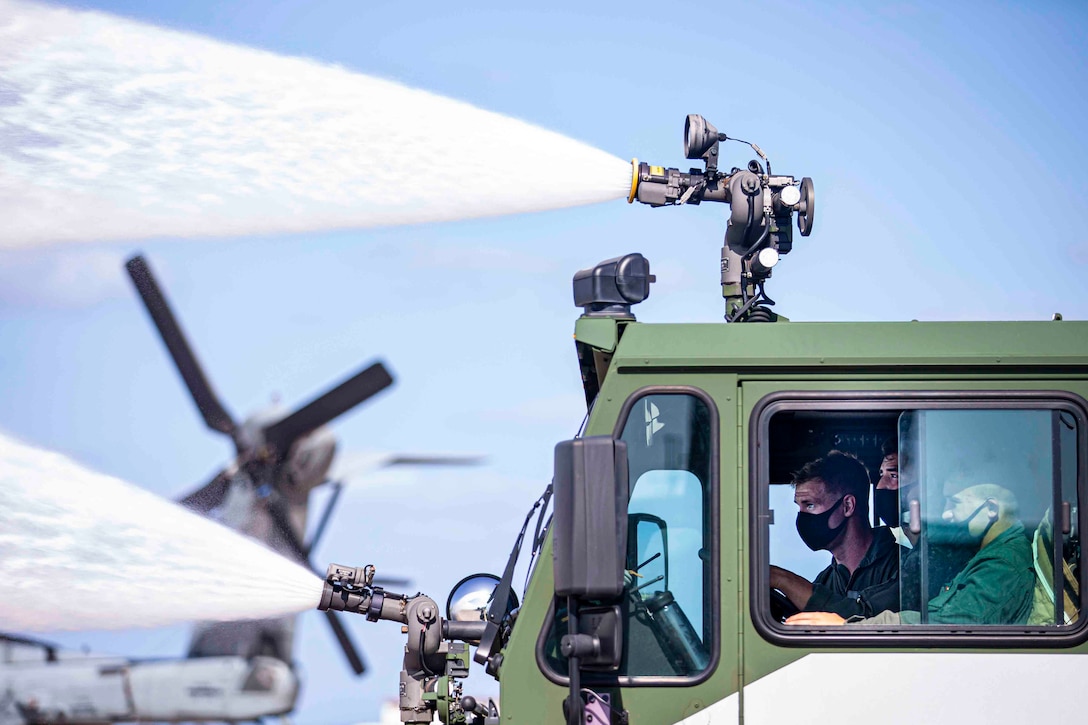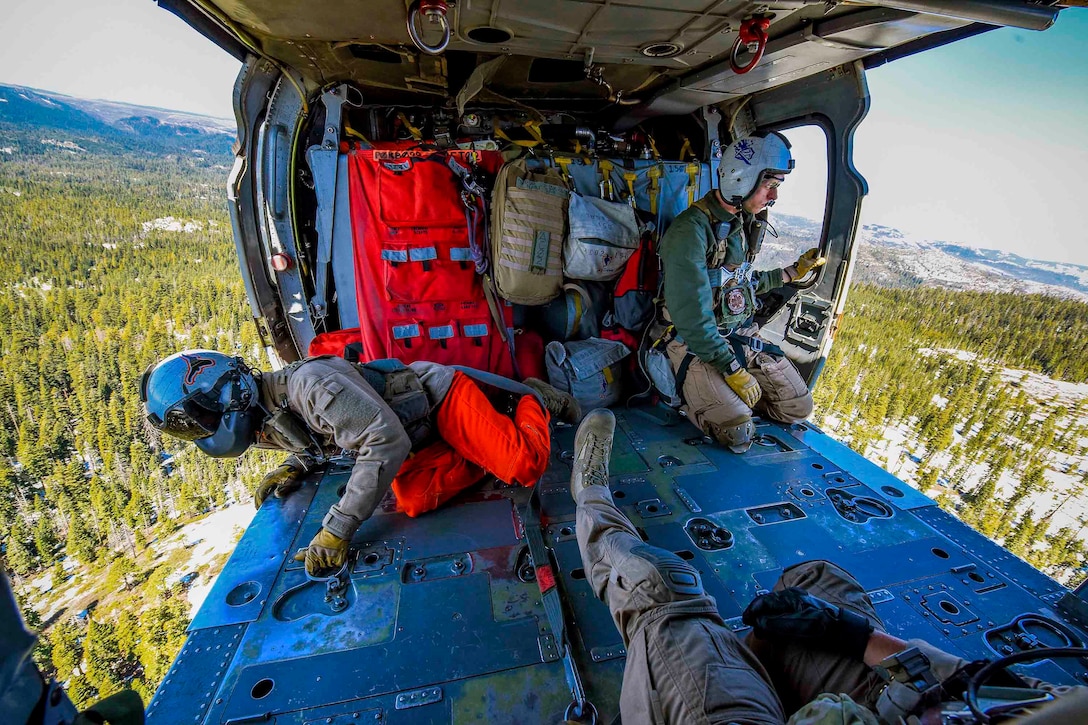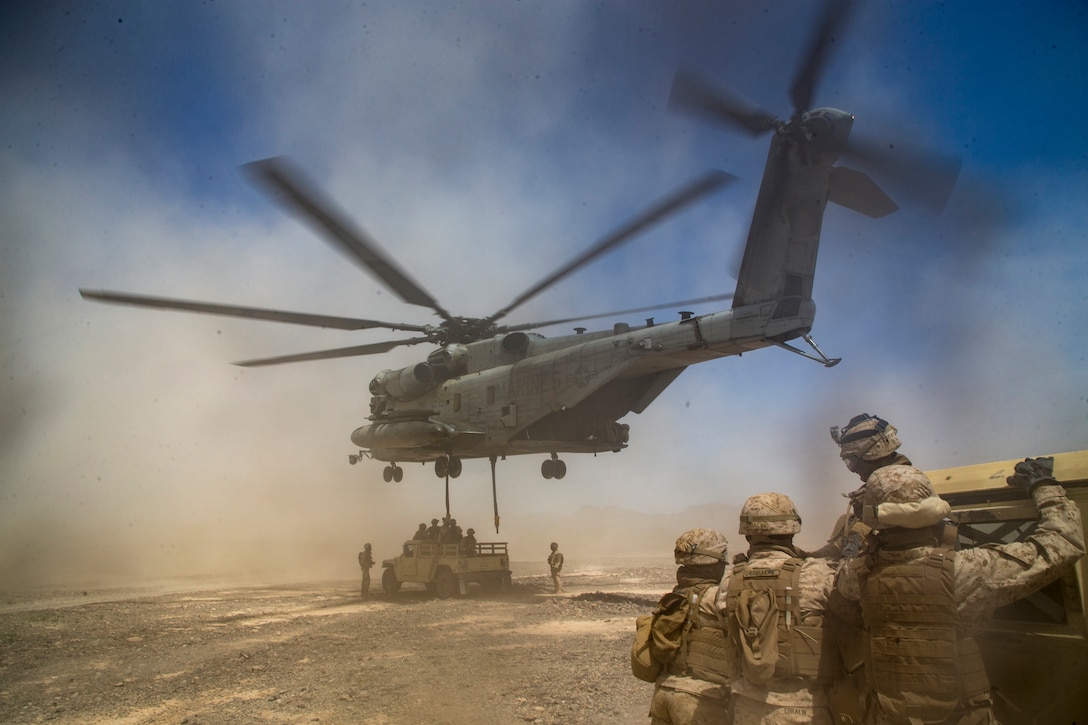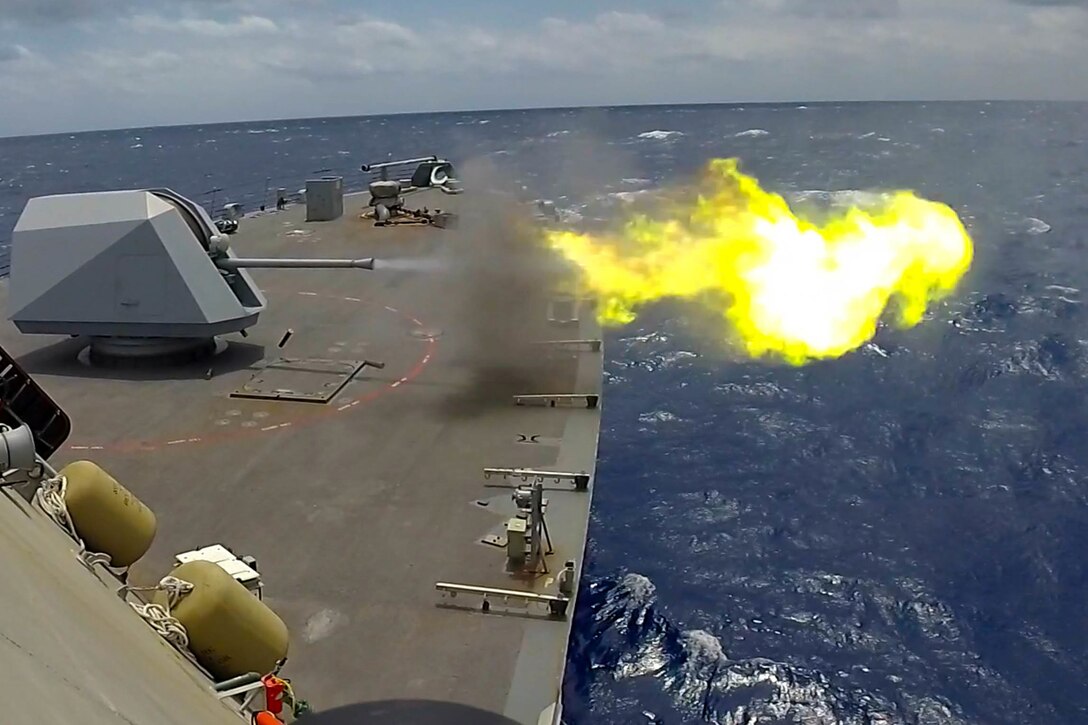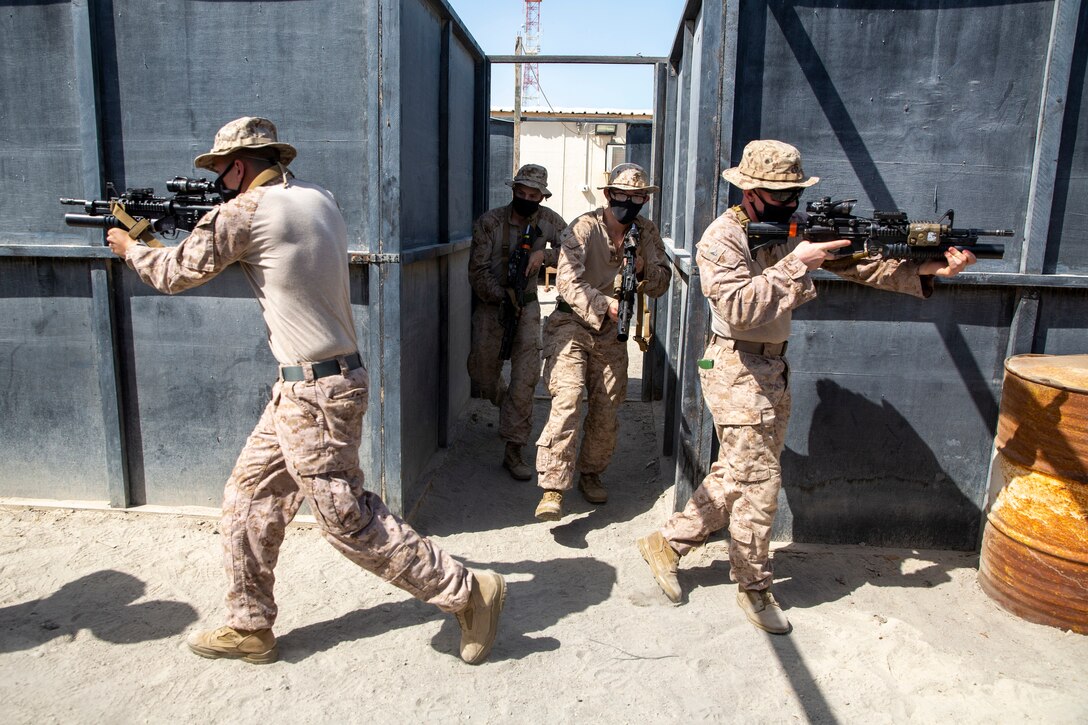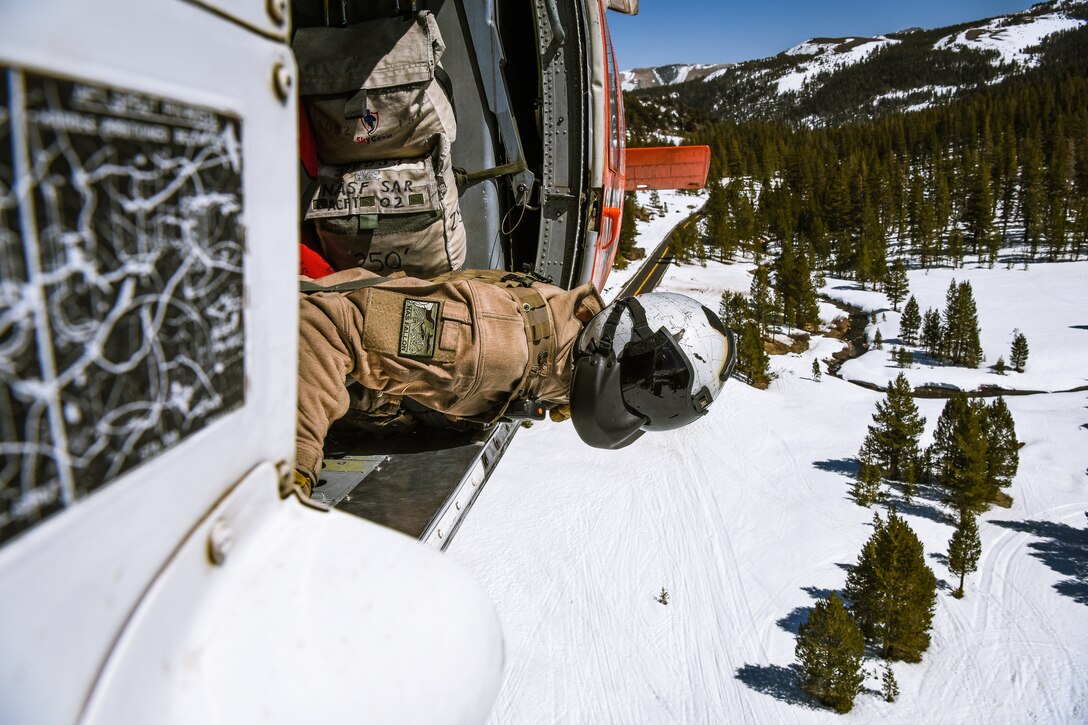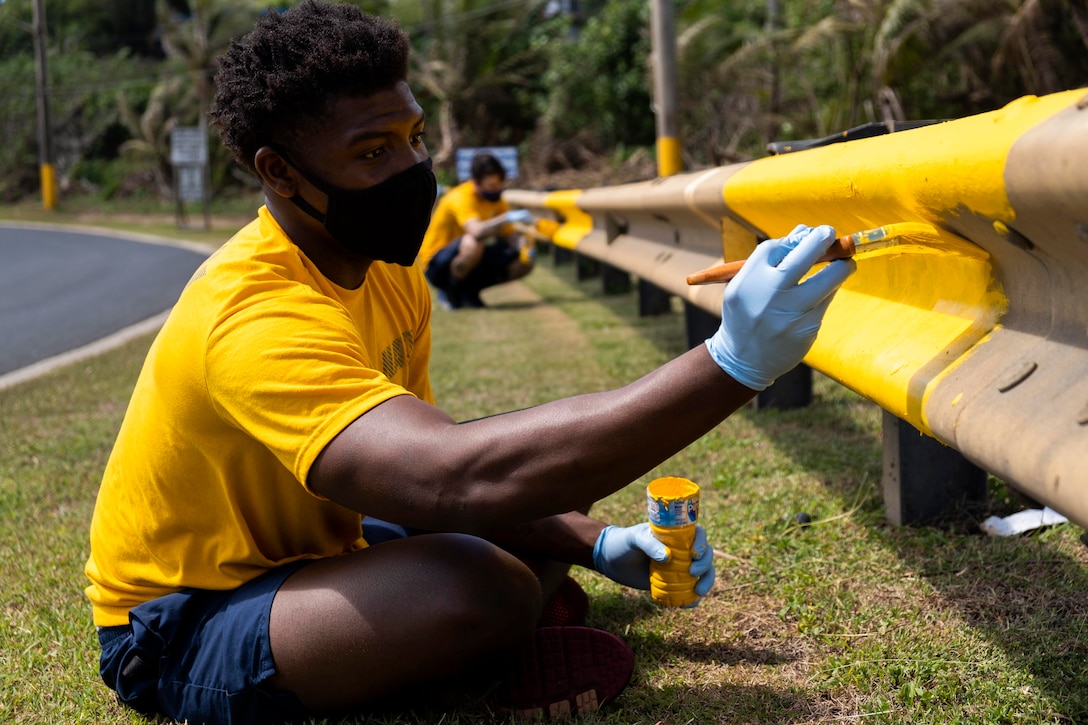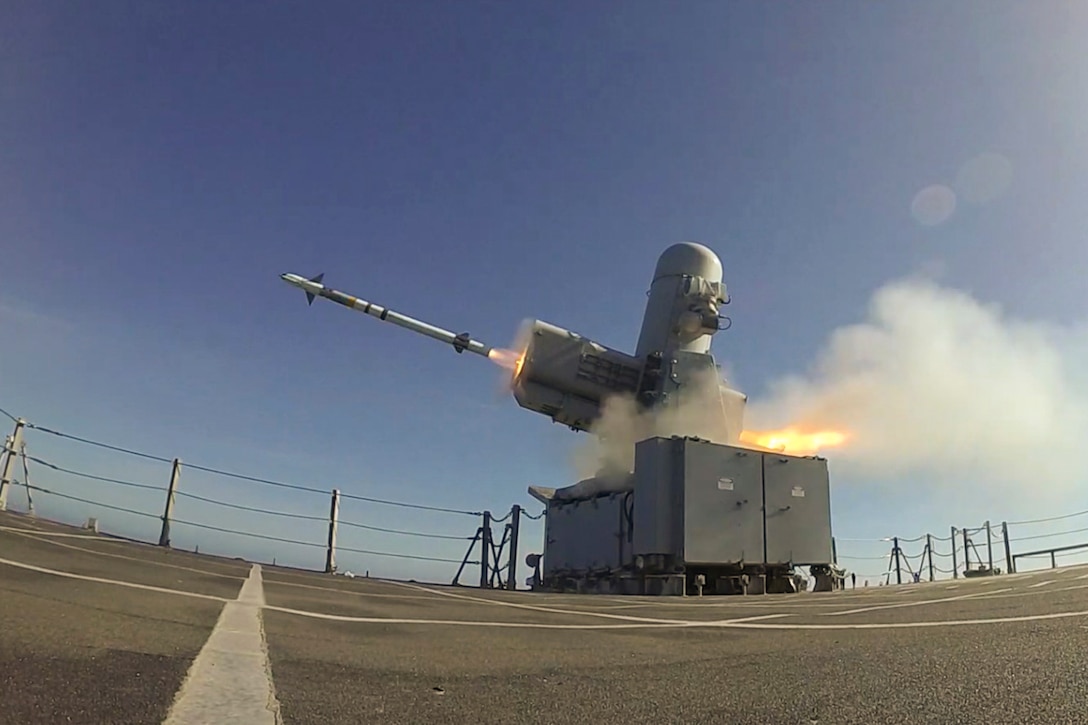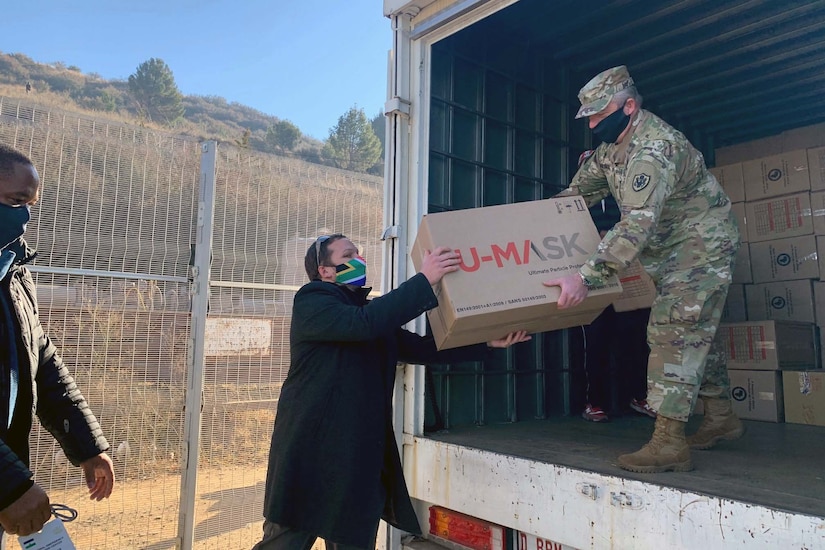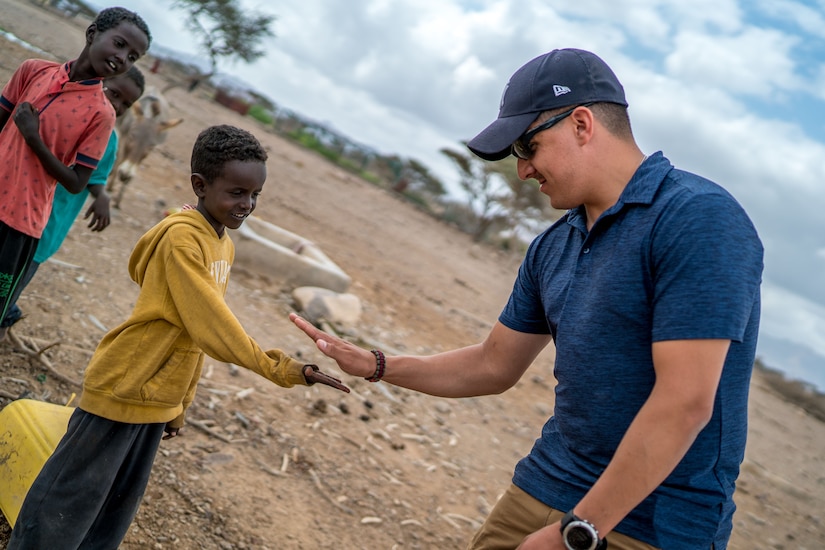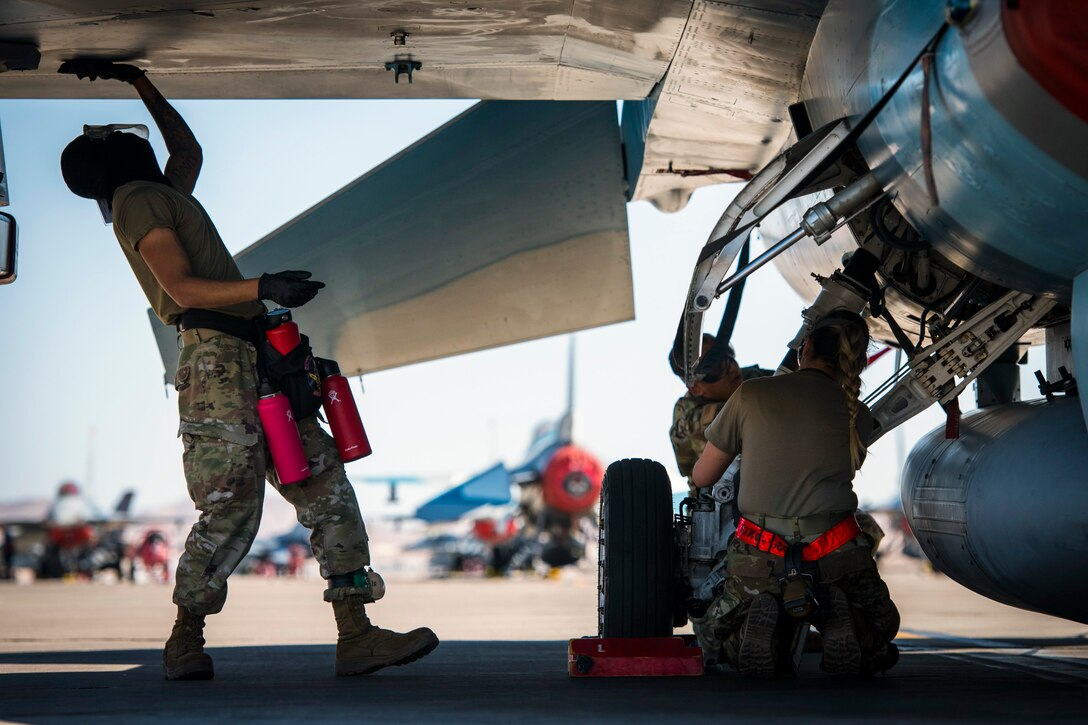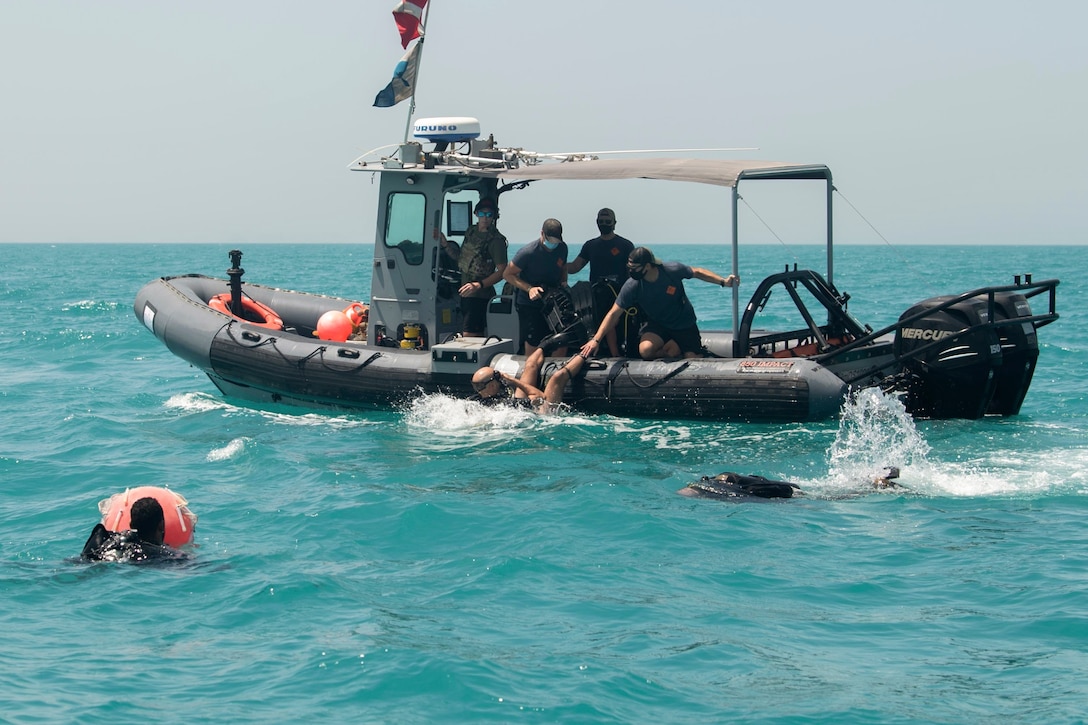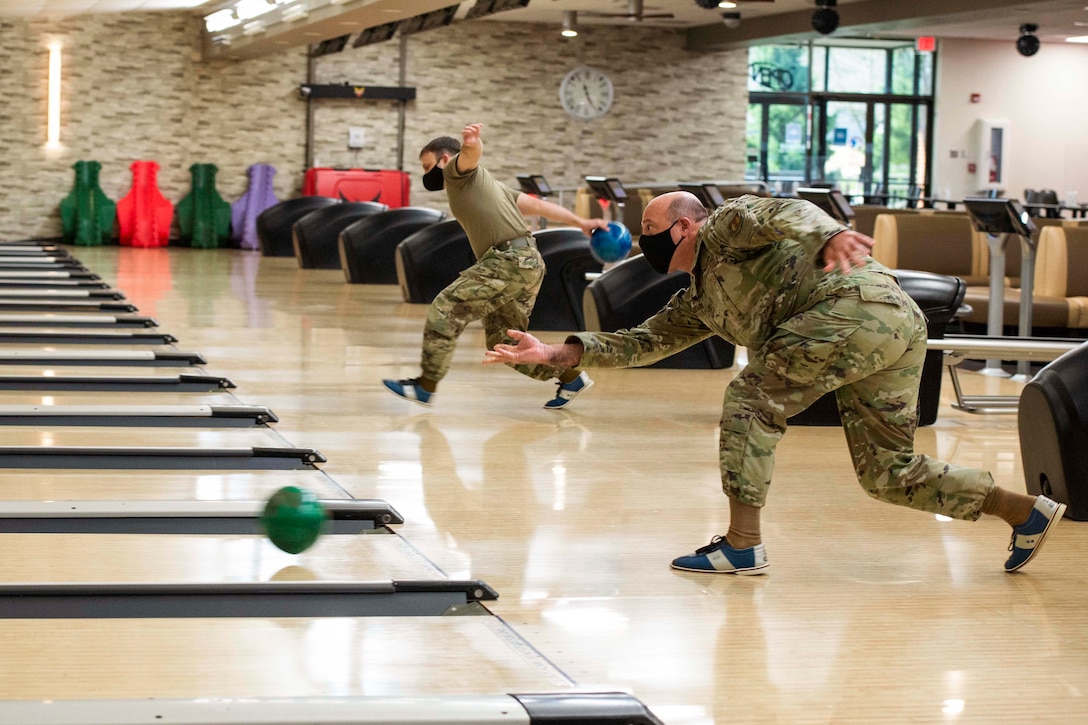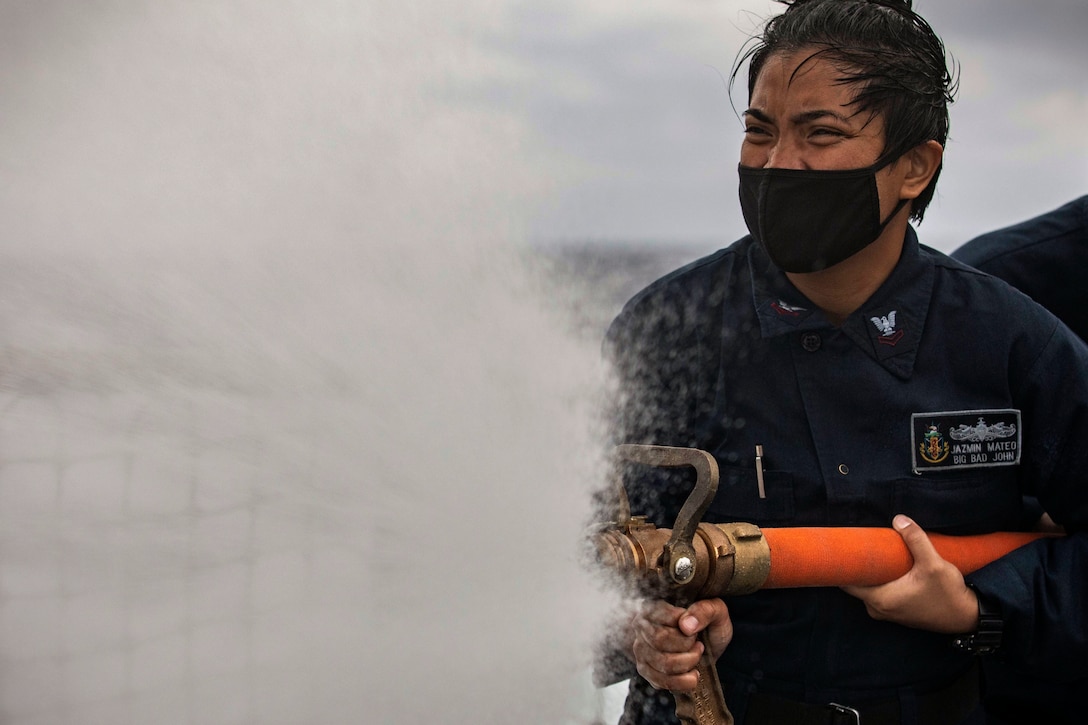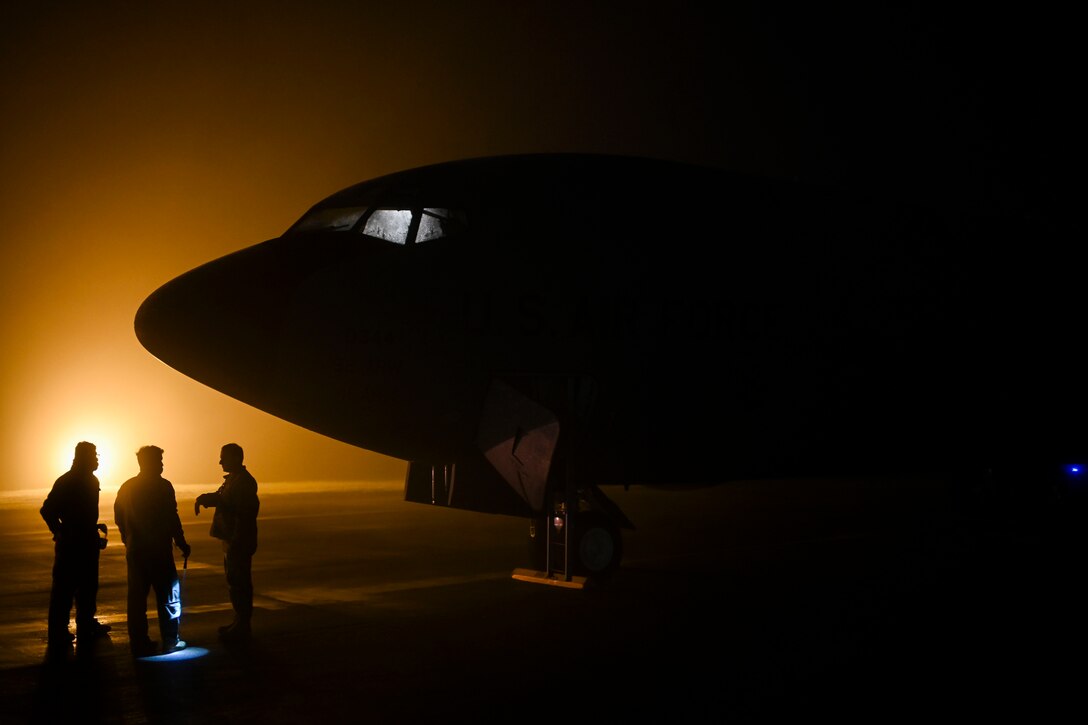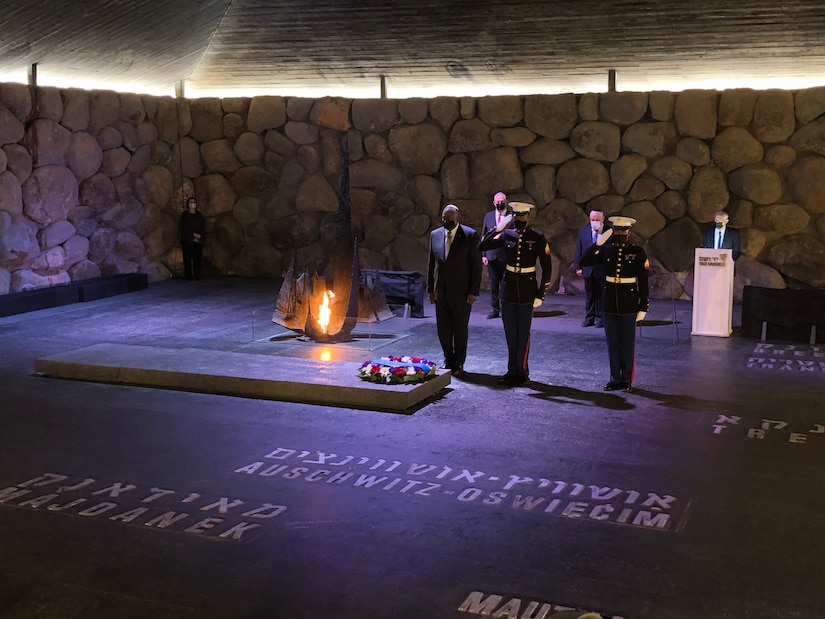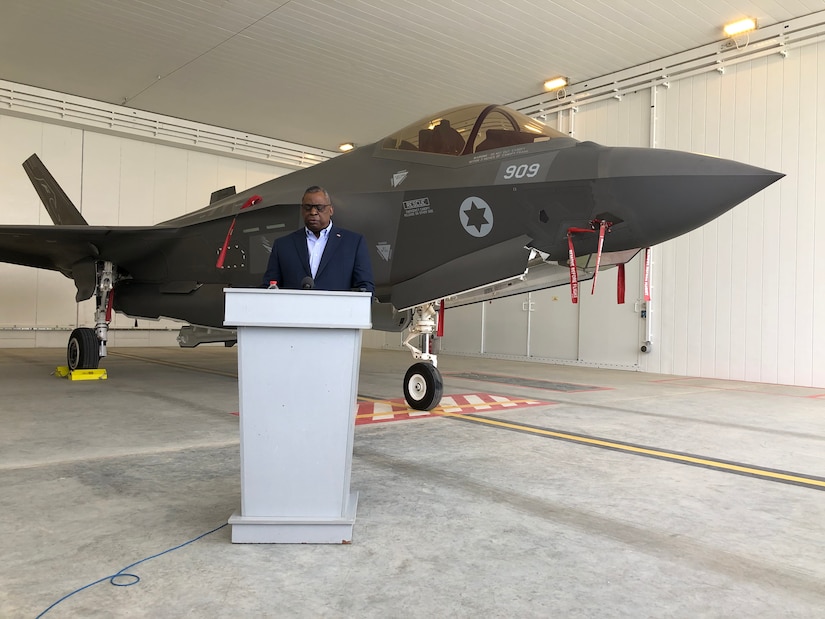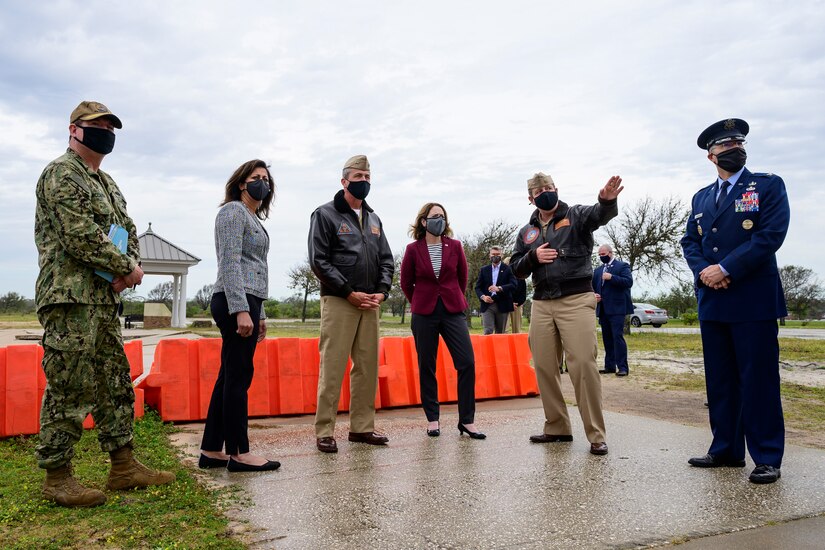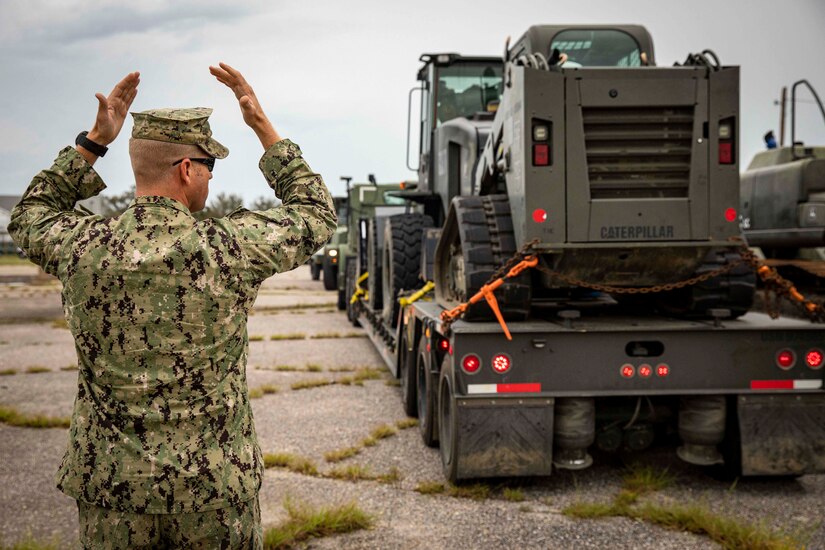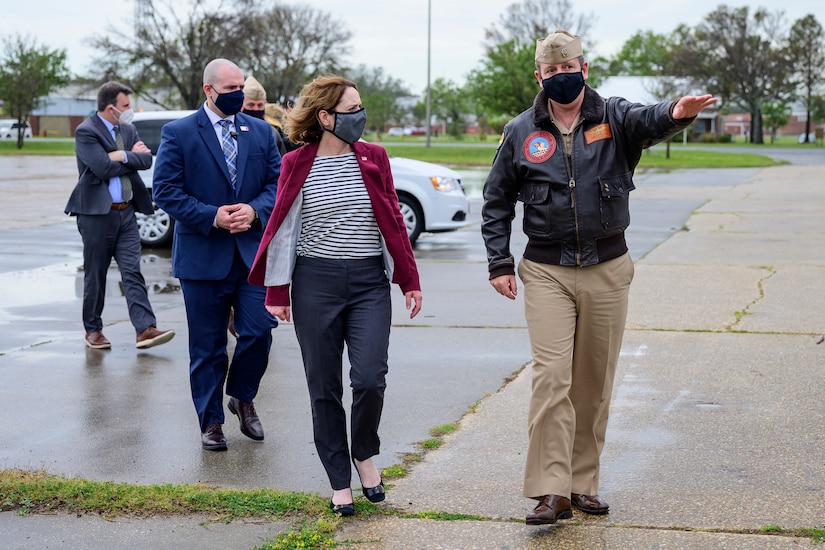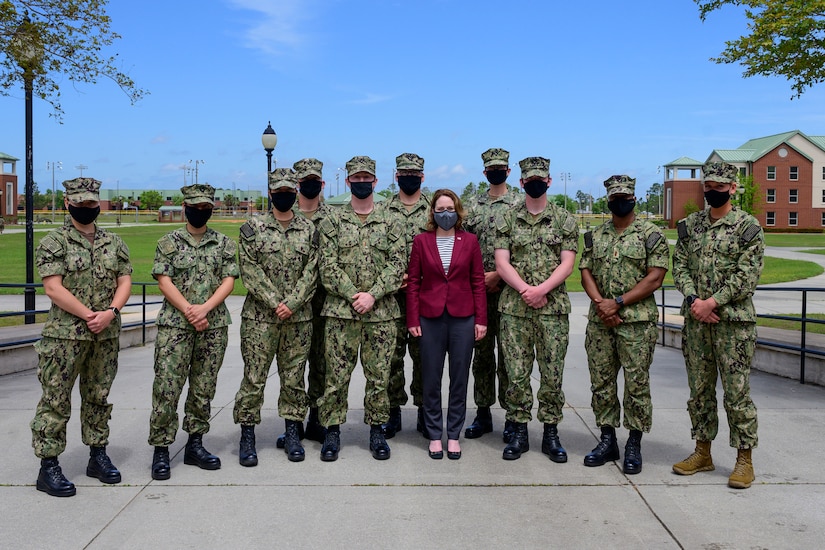During a windshield tour of Naval Air Station
Pensacola on April 8 in Florida, Deputy Defense Secretary Kathleen H.
Hicks saw firsthand the damage caused by last year's Hurricane Sally to
the home of the Navy's Blue Angels.
Around the installation, wind had damaged the roofs of historical
homes, making some uninhabitable. Trees were felled, windows were
broken, and there was flooding and power outages base-wide.
Overall, the air station suffered about $450 million in damages.
Twenty-seven football fields worth of temporary blue roofing now covers
many facilities. While the NAS Pensacola and Navy Region Southeast teams
have managed to keep operations running at the air base, which trains
about 59,000 students a year, the 2021 hurricane season still looms in
the near future.
"We wanted to come to a place where we could see firsthand how the
effects of climate change are playing out at an operational and
installation level," said Hicks of the trip. "Pensacola was hit just in
September. So because it's hurricane Sally, it's one of our most recent.
So it was pretty fresh. We were able to see a lot of what they're still
going through there."
But Pensacola wasn't even the most egregious example of damage to
Defense Department installations as a result of hurricanes. Tyndall Air
Force Base, about 100 miles down the coast from Pensacola, was destroyed
by 2018's Hurricane Michael.
"The entire base was completely devastated," Hicks said.
The estimate for rebuilding Tyndall sits around $6 billion, she said.
As part of the trip, Hicks participated in a climate change-related
video conference with leaders from other vulnerable installations around
the region.
"At the Department of Defense, we know that the readiness of the
force is very much tied to how well we manage through and think about
resilience in the face of climate," Hicks told the leaders. "So this is
an effort by the team and I to make sure that we understand, again, how
that plays out in your plans, in the missions you have to execute, in
your budgets, so we can get a better sense of how to help at the high
end."
Because it's a challenge to push responsibility for developing
resilience against the effects of climate change all the way down to
installation commanders, Hicks said, the biggest lift must come from the
department itself, through better policies that focus on helping ensure
the nation's defense can withstand climate effects.
"I think what we have to do across the entire enterprise for DOD is
set as a priority the resilience of our facilities, the resilience of
our operations," she said. "Just like we focus on cyber defense
— because we know there are threats from cyber — it's the same kind of
thing for climate. We need to be focused on that resilience so that we
can be ready in the face of challenges."
Some approaches to ensuring resilience, she said, are investments in
different kinds of technology, upgrades in military construction and
upgrades in utilities.
"Those are all things we can help by prioritizing," she said.
In the short term, Hicks said her focus is to get a better
understanding of what climate-related challenges exist across the DOD.
"Part of it is just assessment," she said. "We've got to assess where
we are as a department, identify the really challenging areas, and
identify the opportunities."
There will be other trips, she said, to visit other installations to help with that assessment.
In the long-term, we will be finding ways to take action on that new understanding.
"I suspect what we will find is those actions will involve how we
ensure our installations are more resilient... how we ensure that we
aren't as reliant on our fuel lines as we have been in terms of our
operations," she said. "And then, how we make sure that we have the
capabilities we need to operate in a world with a different climate."
As part of her initial efforts to get a grasp on how climate affects
U.S. military readiness and operations, Hicks said the visit to
Pensacola was an eye-opening experience.
"The most important thing to me was seeing, down at that installation
level, what we talk about in Washington as a crisis," she said. "We
know from looking at the dollars that we're paying a high price for not
being prepared and not dealing with the climate crisis more broadly.
When you get down to Pensacola, you look at the damage and the reality
of living in those constant conditions of potential storm effects. It
gave me a very strong sense of how much it can affect how an
installation has to operate and what the negative consequences can be
over time."
Not all of what Hicks saw at Pensacola was related to climate. She
also visited several of the school houses there to see how training is
conducted and met with some of the sailors there as well.
"They are incredibly impressive — so talented," she said. "They had
really thoughtful questions on China and deterrence and sustainability
of the aircraft maintenance in the Navy, to just every kind of big-think
question — budget top lines. So that was incredibly impressive. On the
cyber side, just seeing the ability to have innovation occurring at the
ground level, where individual sailors and officers are making
contributions that change the way we think about how we train and fight,
that was really inspiring."
